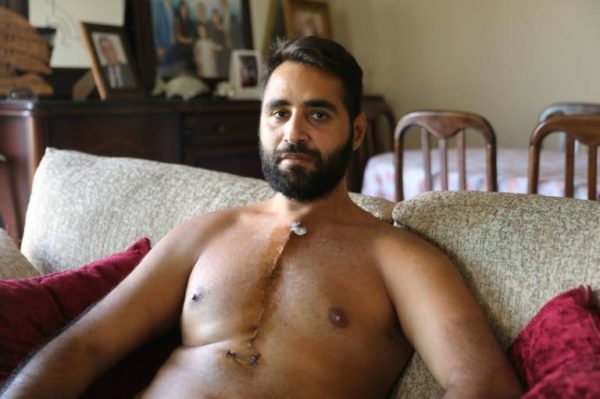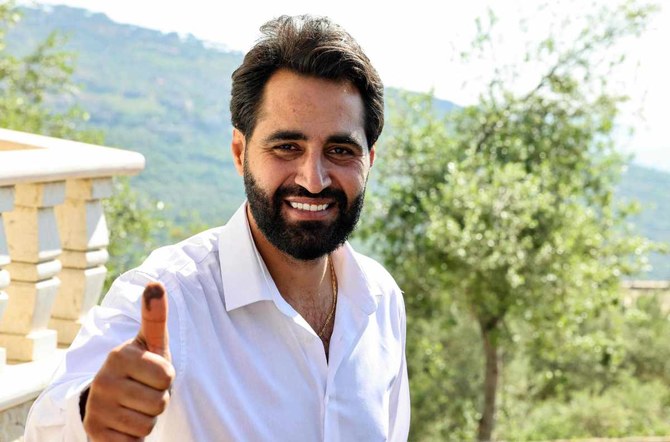Last week’s Lebanese elections represented an elusive promise of change, but for change to prevail we have immense work ahead of us.
In this historic shake-up of traditional political fiefdoms, several figures who were regarded as irreplaceable pillars of the old system — such as Hezbollah and Syria allies Talal Arslan, Elie Ferzli and Faisal Karami — lost their seats. Despite massive efforts by the old guard to co-opt and steal the vote, over 50 percent of the coming parliament is likely to be composed of new faces.
A new crop of 17 “change” candidates, many of whom were personally active in the 2019 uprising, have transformed the political fabric beyond all recognition. They look and talk like ordinary Lebanese, unlike the kleptocratic class we are accustomed to seeing in government. The new female entrants represent a refreshing change from the wives and sisters of prominent politicians — normally the only women who get a look-in.
The parliamentary representation of Hezbollah and its allies fell from 73 seats to 60, and would have fallen even farther without flagrant intimidation and vote buying. Many traditional Hezbollah supporters abstained from voting altogether. Hezbollah was further discomfited by a sharp drop in funding and votes from the immense Lebanese Shiite diaspora, many of whom took the momentous step of backing reformist candidates. Hezbollah’s efforts to exploit the post-Hariri vacuum to pick off Sunni candidates failed miserably.

The group’s leader Hassan Nasrallah grudgingly acknowledged that he no longer had an absolute majority, while nevertheless declaring a “huge victory.” One of the biggest losers, Gebran Bassil of the Free Patriotic Movement, gave a demagogic, reality-denying speech reminiscent of Nasrallah himself in which he hotly denied that the FPM were no longer the largest faction, and insisted that they would win even more seats after recounts and appeals.
Hezbollah is banking on being the best-organized party to dictate the progress of post-election negotiations. Newly elected MPs with negligible frontline political experience will have the gates of hell thunderously opened upon them; a blizzard of bribes and threats will seek to compel them to either change sides, or passively acquiesce in gambits to paralyze the formation of a government until other factions cave in and bestow upon Hezbollah its traditional “blocking third.”
In a striking parallel, Tehran’s widely detested paramilitary proxies in Iraq won just 17 seats, about 5 percent of the parliament, in elections last October. This spectacular collapse hasn’t prevented them from blocking any semblance of political progress for months on end, and demanding key seats in government. The game that Hezbollah will play in Lebanon will be no less violent, dirty or maximalist.
MPs must unite and stand their ground against this divide-and-rule blitzkrieg. In this they require support from the enlightened political establishment, citizens and the international community. Differences, egos and ideologies must be put aside for the sake of Lebanon’s very existence.
Lebanon cannot afford months of brinkmanship. The currency continues to plunge in value, the Deir Ammar power station in Tripoli has ceased operations entirely, flour reserves are rapidly dwindling, and taxi drivers have been protesting against new increases in fuel prices.
As Nasrallah himself acknowledged, it will be necessary to “work together” to supply food, medicines and fuel to a populace mired in extreme poverty. Given such challenges, Nasrallah called for “postponing” the issue of Hezbollah’s weapons for a further two years — an interesting change of tone from the group’s usual threats to engulf the region in flames before relinquishing its arms. Nasrallah’s references to Lebanon’s Arab identity reflect discomfort at how his servitude to Tehran has weakened Hezbollah in the eyes of the electorate.
The all-important IMF bailout can finally make progress under a leadership that isn’t a transparent Hezbollah plaything. There are issues of maritime and land borders, and the question of the presidency, for which citizens would happily embrace almost any candidate whose name isn’t Gebran Bassil. Finally, there is the equally problematic issue of selecting a parliamentary speaker. Will the “resistance” factions insist on Nabih Berri again at all costs, or will there be flexibility over a younger and less divisive Shiite candidate?
Meanwhile, following comments by former US State Department official David Schenker about Trump-era financial sanctions against Hezbollah, the group proclaimed that they had uncovered a massive Western plot to wreck the Lebanese economy and sabotage the elections. Ludicrously, Hezbollah MP Mohammed Raad warned opponents that they would not be allowed to become traitorous “shields” for Israel, or “fuel” for a civil war.
Instead of issuing threats and promoting conspiracy theories, Hezbollah should internalize this electoral rebuke, and realize that in most people’s minds Iran and Israel are equally existential enemies of Lebanon’s national interests. Anybody serving the agenda of either will inevitably — and rightfully — be regarded as a traitor.
These elections represented a breakthrough for voter awareness, with many diverging from sectarian preferences. Particularly among the diaspora there were huge efforts to assist voters in making intelligent choices of the best candidates.
But these modest beginnings are not yet cause for jubilation: The default likelihood is that, by using every unscrupulous trick in its playbook, Hezbollah will ultimately succeed in stealing the outcome of the elections. This formidable foe is armed to the teeth and won’t relinquish its weapons without a fight.
Nevertheless, the elections give us hope that a rejuvenated Lebanon is possible; that the political system can be restored; that this regional hub for culture, trade and tourism can return to flourishing prosperity; that life can once again be worth living; and that the Lebanese people can obtain what they deserve — a sovereign parliament that truly represents them.
The Lebanese state has been held hostage for too long. These elections offer the hope of liberation and the key with which the chains can be unlocked — provided we have the courage and determination to follow through by flinging open the prison doors and allowing Lebanon to regain its rightful place in the Arab world.
Baria Alamuddin is an award-winning journalist and broadcaster in the Middle East and the UK. She is editor of the Media Services Syndicate and has interviewed numerous heads of state.
Arab News


Leave a Reply
You must be logged in to post a comment.